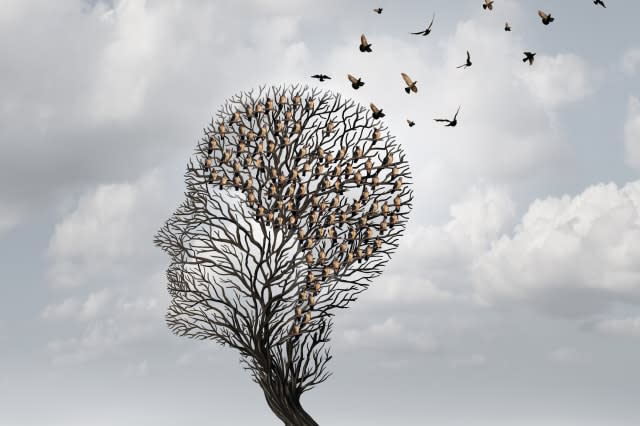Forgetfulness: What's normal and what's not?

We've all gone into a room only to forget what we walked in for. While it's true that the brain changes as we get older and some forgetfulness is normal, major memory problems could be a sign of something more serious. Read on to find out when forgetfulness is normal, and when it could be a sign of dementia.
See also: Nine ways to reduce your risk of dementia
See also: Eight hidden signs of dementia
How ageing affects the brain
Our brains age just like the rest of our bodies, and most of us will experience some forgetfulness as a natural part of getting older. Memory lapses can be frustrating, but most of the time they are not a cause for concern.
Studies show that it takes longer to read, understand, and process information as we get older - and people can sometimes mistake this slowing of their mental processes as a sign of true memory loss, yet the information will usually come to mind in time.
While some forgetfulness is to be expected, significant memory loss is not an inevitable part of ageing. Keep in mind that normal ageing does not affect many cognitive abilities including:
• Your ability to perform tasks you've always done and continue to do often
• The wisdom you've gained from life experience
• Your common sense
• Your ability to form reasonable arguments and judgments
Studies show that your diet and how much you exercise can have a huge effect on the health of your brain. Whatever your age, there are ways you can help prevent memory loss.
Eight ways to keep your brain sharp
What's normal and what's not?
Forgetting where you put your keys is perfectly normal. Forgetting what your keys are for is not. Likewise, it's normal to forget an acquaintance's name. Forgetting the name of a close family member, and still not being able to remember after a length of time, is not normal.
People with dementia usually experience memory problems that get gradually worse over time, rather than happening suddenly. They also find it hard to remember immediate or recent events, but can still remember things that happened years ago. This means that if the long-term memory is affected, it probably isn't dementia.
Take the test
This simple 15-minute test claims to be able to spot the early signs of Alzheimer's disease. The test can be completed online or by hand and tests language ability, reasoning, problem solving skills and memory. While it cannot diagnose dementia or Alzheimer's, it does flag up problems to doctors which they can then monitor over time.
If you're worried about a loved one, the AD8 Interview uses scenario-based questions to determine whether there has been a marked change in an individual's behaviour over time. If you answer yes to two of them, then the person may be showing the first signs of dementia or Alzheimer's.
When to see a doctor
If your memory lapses are frequent, getting worse, or affecting your ability to function in the world, it's important to see your doctor. Keep in mind that around 40% of people over 65 have some type of memory problem, and only 15% will develop dementia each year. There are lots of things that can cause forgetfulness, many of which are treatable.
Five medical issues that can be mistaken for dementia
Your GP will ask about any medications you're taking, how you've been eating and sleeping, whether you've been depressed or stressed lately, and your general state of health. They may also arrange a blood test.
Concerned that someone you care for has dementia? If they aren't aware of their memory loss, or are in denial, they may be reluctant to see their doctor. The NHS has a factsheet on how to persuade your relative to see a doctor.



